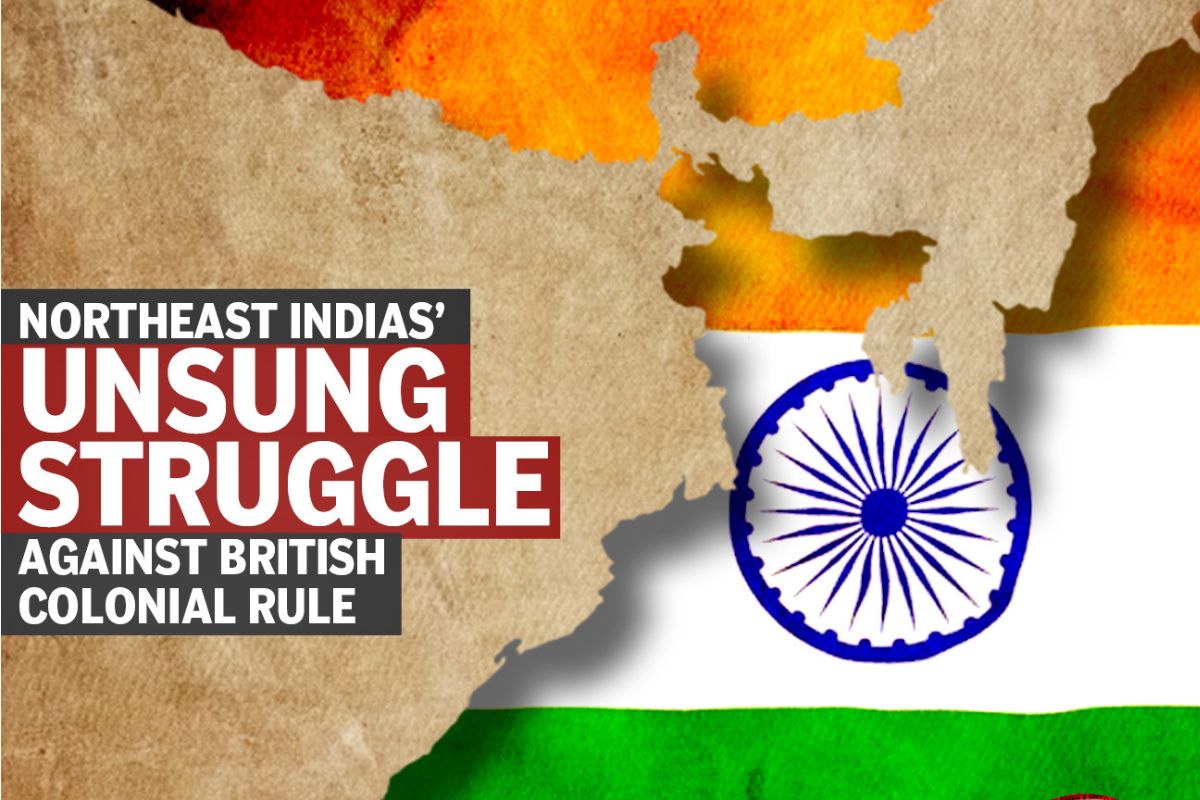BCCI announces reward for unsung heroes of IPL
The Delhi Capitals played their first three home games in Visakhapatnam as their traditional home venue — the Arun Jaitley Stadium in New Delhi was preoccupied for the Women’s Premier League playoffs.
Among these unsung heroes, the people of Northeast India emerge as a powerful testament to unwavering commitment and sacrifice, as they too played a pivotal role in the fight for India’s independence.
Manaswi | August 13, 2023 7:33 pm

The tapestry of India’s freedom movement is woven with the threads of countless individuals who fought valiantly against British colonial rule. While the names of prominent leaders dominate the pages of history, the contributions of many others often remain hidden in the shadows. Among these unsung heroes, the people of Northeast India emerge as a powerful testament to unwavering commitment and sacrifice, as they too played a pivotal role in the fight for India’s independence.
One of the most inspiring chapters in Northeast India’s struggle against British colonialism is the story of Rani Gaidinliu. A charismatic leader and spiritual icon, she became a symbol of resistance during the Heraka movement. Rani Gaidinliu’s leadership ignited a fire among the Naga people to resist British rule and safeguard their cultural heritage. With unwavering determination, she stood against both British authorities and the forced religious conversions imposed on the Nagas, inspiring countless individuals in their quest for freedom.
Advertisement
The courage of Manipur’s resistance against British rule is exemplified through the bravery of Bir Tikendrajit Singh. The Anglo-Manipur War of 1891 witnessed his defiance alongside General Thangal against the formidable British forces. Their resistance embodied Manipur’s spirit of asserting sovereignty and rejecting colonial domination. Bir Tikendrajit Singh’s legacy endures as a testament to Manipur’s steadfastness in the face of colonial oppression.
Advertisement
The saga of resistance in Tripura is illuminated by the Jhum Cultivation Movement, which stands as a powerful testament to the region’s determination against unjust British taxation. Under the leadership of figures like Jitendra Chandra Das and Brajendra Kishore, the movement united Tripura’s populace in protest against exploitative jhum cultivation taxes. The unity and resilience displayed during this movement underscore the strength of collective action against colonial exploitation.
The understated yet impactful Kiang Nangbah uprising in the Jaintia Hills of Meghalaya underscores the spirit of self-determination that coursed through the region. This silent rebellion was a profound response to the British-imposed begar (forced labor) system. Led by Kiang Nangbah, the people of Meghalaya defied exploitation and asserted their right to shape their own destiny.
Amidst the fervor of resistance, the Lushai Uprising of 1871 stands as an early example of Northeast India’s defiance against British oppression. Under the leadership of chiefs like Kaptura, this uprising serves as a reminder of the region’s resilience. The sacrifices made by Lushai leaders and their people echo as a poignant reminder of their enduring spirit in the face of adversity.
The struggles and sacrifices of Northeast Indians during India’s freedom movement, often overlooked by mainstream narratives, are an integral part of the nation’s journey to independence. From the tenacious leadership of Rani Gaidinliu to the unwavering defiance of Manipur’s Bir Tikendrajit Singh, these unsung heroes played pivotal roles in shaping history. The stories of Tripura’s tax revolt, Meghalaya’s silent rebellion, and Mizoram’s forgotten uprising collectively speak to the indomitable spirit of the region.
Advertisement
The Delhi Capitals played their first three home games in Visakhapatnam as their traditional home venue — the Arun Jaitley Stadium in New Delhi was preoccupied for the Women’s Premier League playoffs.
The series, consisting of two seasons, has been produced by the Central Bureau of Communication under the Ministry of Information and Broadcasting and Graphiti Studios.
Here are 10 unsung freedom fighters from West Bengal who, though not widely acknowledged, played crucial roles in India's fight for freedom:
Advertisement
